Debt Collection Agency in Vietnam - No Win, No Fee
Your claims are handled exclusively by Upper Class Collections, our licensed local partner (cong ty thu no) with 19+ years of international experience and a dedicated Ho Chi Minh City office.

Why Choose Debitura for Debt Collection in Vietnam

Fast, simple and risk-free debt collection in Vietnam
Debitura connects you with CONG TY TNHH Upper Class Collections, an Vietnamese-licensed agency with a dedicated Ho Chi Minh City office and 19+ years of international collection experience. Member of IACC.
- Risk-free: Pay only when we recover your money.
- Quick setup: Submit invoices in a few clicks.
- Real-time tracking: Monitor progress live in one portal.
- Local expertise: Multilingual team speaks 15+ languages across ASEAN.

Get started in three simple steps
- Create your free Debitura account and upload your unpaid invoice with supporting documents.
- Upper Class Collections contacts your debtor within 24 hours from their Ho Chi Minh City office.
- Track progress in real time and receive funds directly when recovered.
Already using an ERP or accounting system? Connect via API or use Zapier to automate claim uploads.


Transparent, success-based pricing
Debitura operates on a No Win, No Fee basis. You pay nothing upfront and only a success fee when your debt is recovered.
- Zero upfront costs: No registration, subscription, or hidden fees.
- Performance-driven: Our partner only earns when you get paid.
- Competitive rates: Fees scale with claim value - larger claims mean lower rates.
- Full transparency: See all pricing before you commit.

Fast, simple and risk-free debt collection in Vietnam
Debitura connects you with CONG TY TNHH Upper Class Collections, an Vietnamese-licensed agency with a dedicated Ho Chi Minh City office and 19+ years of international collection experience. Member of IACC.
- Risk-free: Pay only when we recover your money.
- Quick setup: Submit invoices in a few clicks.
- Real-time tracking: Monitor progress live in one portal.
- Local expertise: Multilingual team speaks 15+ languages across ASEAN.
The ultimate guide about debt collection in Vietnam (2026 Version)
Why you can trust this guide
At Debitura, we uphold the highest standards of impartiality and precision to bring you comprehensive guides on international debt collection. Our editorial team boasts over a decade of specialized experience in this domain.
Questions or feedback? Email us at contact@debitura.com — we update this guide based on your input.
Debitura By the Numbers:
- 10+ years focused on international debt collection
- 100+ local attorneys in our partner network
- $100M+ recovered for clients in the last 18 months
- 4.9/5 average rating from 621 reviews
Expert-led, locally validated
Written by Robin Tam (16 years in global B2B debt recovery). Every page is reviewed by top local attorneys to ensure legal accuracy and practical steps you can use.
Contributing local experts:
Last updated:
Embarking on debt collection in Vietnam can seem overwhelming. With Debitura, be armed with a profound blend of local insight and international prowess, simplifying debt recovery. This guide is your ultimate resource, enabling successful navigation through any debt collection situation.
Critical Actors in Vietnam's Debt Recovery Scene
In the complex landscape of Vietnam's debt recovery sector, its crucial to comprehend the distinct roles and duties of the key players. This includes debt collection agencies, bailiffs, and lawyers, all playing their part in debt recovery, within the rigid legal boundaries of Vietnam.
Understanding the Role of Debt Collection Agencies in Vietnam
In the vibrant economy of Vietnam, debt collection agencies play a pivotal role in the financial ecosystem by facilitating the recovery of debts through non-litigious means. Prior to engaging in judicial proceedings, creditors often turn to these agencies in hopes of an amicable resolution. Employing strategies such as persuasive communication, negotiation, and mediation, these agencies adeptly maneuver through the initial stages of debt recovery. Governed by Vietnam's stringent consumer protection laws and the Investment Law 2020, their operations are tailored to respect debtor's rights while ensuring the recovery process is both peaceful and compliant with legal standards. However, their authority is circumscribed by limitations, prohibiting them from engaging in legal actions or coercive measures that could disrupt the debtor’s daily life or tarnish their dignity. This delineation underscores the necessity for collaboration with legal professionals when transitioning from amicable to judicial debt collection approaches.
Lawyers in Vietnam
In Vietnam, the complexities surrounding debt recovery often necessitate involving lawyers, especially when there's a need to escalate matters through judicial channels. Lawyers play a critical role in advising on the pre-litigation mechanisms and in representing creditors during court proceedings. Engaging a lawyer becomes paramount when amicable collections fail or when the debt dispute requires formal legal action to resolve. Their tasks range from the drafting of legal notices, pursuing litigation, to negotiating settlements under court supervision. These legal professionals bring a wealth of expertise in Vietnamese law, ensuring that the creditor’s actions are legally sound and that their rights are robustly defended. In Vietnam’s legal landscape, a lawyer's involvement is crucial for navigating the intricacies of court procedures, effectively enhancing the probability of debt recovery success.
The Role of Bailiffs in Vietnam
In Vietnam, bailiffs are key figures in the enforcement of debt collection, vested with the authority to implement court orders when voluntary compliance does not occur. Recognized by Vietnamese legislation since 2008, bailiffs engage in actions like asset seizure, eviction, and the official delivery of legal documents to ensure the enforcement of judgments. Their tasks include serving legal documents, verifying judgment execution conditions, and organizing the execution process, ensuring a refined balance between creditors' recovery efforts and safeguarding debtors' rights.
To deploy a bailiff, creditors must first secure a court order. This prerequisite ensures that the enforcement process is grounded in a judicial decision, providing a legal framework for the bailiff's actions. Once a court verdict is obtained, and a debtor remains non-compliant, bailiffs, operating from district-level Bailiff Offices, execute the order. Their efforts are tightly regulated to provide an efficacious recovery while maintaining respect for the legal and ethical contours that protect involved parties.
Navigating Vietnam's Debt Collection Legalities
Grasping the intricate legalities surrounding debt collection in Vietnam is key to successful recoveries. Adherence to these legislations not only ensures efficient debt retrieval but also reinforces the principles of justice and equality, crucial for fostering business trust and integrity.
The Regulatory Environment and Civil Court System in Vietnam
Understanding Vietnam's civil court system is vital for navigating legal proceedings effectively, especially in debt collection cases.
- District People's Courts: Serving as the foundation of the judicial system, these courts handle first-instance trials across various fields, including civil matters. Specialized or ad hoc courts can be introduced based on necessity.
- Provincial People's Courts: These courts review appeals from District Courts, conduct first-instance trials for more significant cases, and have specialized branches to cater to different legal domains.
- High People's Courts: Positioned in Hanoi, Da Nang, and Ho Chi Minh City, these courts overview appeals and ensure legal compliance within their respective jurisdictions, covering a broader array of cases with the presence of specialized divisions.
The hierarchical structure of Vietnam's civil court system underscores the importance of engaging with competent legal counsel to navigate its complexities successfully. Whether you're dealing with first-instance trials or appeals, having a clear grasp of which court to approach can streamline the debt collection process, ensuring more efficient legal proceedings.
Key Legislation Impacting Debt Collection in Vietnam
In Vietnam, the legal landscape for debt collection is shaped by several key laws and regulations designed to balance the interests of creditors and debtors while ensuring ethical practices.
- Civil Code: Outlines the legal framework for contracts, including debt agreements, and provides the basis for civil transactions and obligations.
- Law on Credit Institutions: Governs the activities of banks and other credit institutions, including debt recovery processes and the rights and obligations of parties involved.
- Investment Law 2020: Regulates debt collection services, allowing only law firms to carry out lawful debt collection activities, thus promoting peaceful and ethical debt recovery methods.
The effective navigation of Vietnam's legal framework for debt collection requires an understanding of these laws, along with the strategic engagement of knowledgeable legal counsel. This ensures compliance with the law and the adoption of effective, ethical debt recovery practices.
Consumer Protection from Unfair Collection Practices in Vietnam
In Vietnam, consumer protection in the context of debt collection has gained importance with economic growth, acknowledging both legal and cultural sensitivities to uphold ethical practices.
- The Investment Law 2020 ensures only law firms can carry out debt collection, mandating peaceful methods like negotiation or legal prosecution, thus prioritizing consumer protection.
- Prohibition of debt collection activities by non-lawyers under the Investment Law 2020, which aims to eradicate aggressive and unethical collection methods previously rampant.
- Illegal debt collection practices, such as threatening phone calls or violence, are strictly prohibited, with transgressors facing legal consequences, including prosecution and fines.
- Engagement with experienced local law firms for debt collection activities is encouraged to ensure respect, fairness, and adherence to cultural values, enhancing the reputation of legitimate collection practices.
- The law enforces accountability for the publicizing of debtors' personal information and the use of insults or threats, safeguarding the debtor's privacy and human dignity.
By embedding respect and fairness in its debt collection framework, Vietnam seeks to protect consumers from unfair practices. The emphasis on legal remedies and the collaboration with reputable legal entities underscore the commitment to ethical debt recovery while respecting cultural norms.
Amicable Debt Recovery in Vietnam
The pathway to amicable or pre-legal debt collection in Vietnam revolves around resolving debt disputes devoid of courtroom involvement. Delegated typically to collection agencies, this route is less convoluted, expeditious, and outlined in this segment with crucial actionable insights.
- Legal Framework and Practitioners: Post Investment Law 2020, only law firms authorized for debt collection activities in Vietnam.
- Structured Debt Collection Law Need: Emphasizes the necessity for laws regulating ethical debt collection practices.
- Cultural Sensitivity: Central to negotiation strategies, respecting interpersonal relationships.
- Extrajudicial Process: Involves amicable efforts with a high success rate around 95%.
- Key Strategies and Documentation: Includes maintaining detailed records and understanding debtor finances.
- Statute of Limitations: Emphasizes timely action, with statutes applied upon creditor's request pre-judgment.
- Fees and Interest Rates: Legal fees and statutory interest up to 20% per annum can be added to the principal amount.
- Consumer Protection and Practices: Necessitates ethical practices, with legal and reputational risks for non-compliance.
- Transition to Judicial Recovery: Considered when amicable efforts fail, requiring court intervention.
- Global and Local Insights: Effective debt recovery combines local legal expertise with global best practices.
Navigating Amicable Debt Collection in Vietnam
In Vietnam, a country marked by its rapid economic development and vibrant business environment, amicable debt collection stands out as a preferred initial strategy for resolving financial disputes. This approach focuses on fostering constructive dialogue and finding mutually beneficial resolutions, without resorting to the courts. It's particularly suited to the Vietnamese context, where maintaining harmonious business relationships and respecting cultural norms are paramount.
The Role of Collection Agencies in Amicable Debt Recovery
Engaging a professional collection agency like Debitura can significantly enhance the effectiveness of amicable debt collection in Vietnam. With a decade of experience and a deep understanding of the local business culture, Debitura mediates negotiations with a respectful yet assertive approach. With services beginning from an initial fee for administrative costs of €185 on a "No Cure No Pay" basis our methods are tailored to ensure compliance with Vietnamese laws while maximizing recovery rates, which stand at an admirable 95% for out-of-court cases.
Why Amicable Solutions Work in Vietnam
Amicable solutions not only mitigate the potential for escalated conflict but also align with Vietnam's cultural emphasis on interpersonal relationships and saving face. This methodology enables debtors to repay under more manageable conditions, preserving their dignity and the creditor's reputation. Moreover, creditors circumvent the lengthy and often costly legal processes, directing resources towards more productive endeavors.
Identifying When to Proceed to Legal Actions
Despite the many advantages of amicable collection, there are situations that warrant a transition to legal proceedings. Unresponsiveness, consistent evasion, or refusal to engage in negotiation by the debtor necessitate this firmer approach. However, due to the complexity of Vietnam's legal system and the importance of maintaining a positive business image, this move requires careful consideration and, preferably, consultancy with legal experts familiar with the local jurisdiction.
Embracing the Amicable Debt Collection Process with Debitura
Debitura makes international debt collection in Vietnam transparent, efficient, and stress-free. We operate on a "No Cure No Pay" principle, ensuring value for our clients. Our process, typically spanning 2-3 months, is designed for simplicity and effectiveness:
- Quick Registration: Sign up for free here, without upfront fees.
- Initiate Your Claim: Upload the details of your claim, agree to the success fee, and empower us to start the resolution process.
- Stay Informed: Follow the progress directly through your personalized Debitura dashboard for real-time updates.
- Exploring Further: Upon unresolved cases, we connect you with local legal experts, offering three quotes for advanced actions, thus providing you with comprehensive support for navigating complexities.
By embracing amicable collection practices in Vietnam with Debitura's expertise, international creditors can navigate the nuances of debt retrieval efficiently, upholding both financial and relational integrity.
Judicial Debt Collection in Vietnam
Legal debt collection takes into effect when amicable strategies fail in recovering owed money. This advanced step entails a court order enforcement for claims through individual bailiffs' involvement. Expect legal aid to be a common necessity in such cases, beyond the scope of small claims. Here, we delve into Vietnam's specific judicial debt collection procedures.
- Vietnamese Court Hierarchy: Involves Supreme People's Court, regional High Courts, Provincial, District Courts, and Military Courts.
- Legal Framework for Debt Collection: Law firms are now the primary entities for debt collection, emphasizing negotiation and legal action.
- Structured Debt Collection Law Need: Advocacy for laws akin to the FDCPA in the US to ensure ethical debt collection.
- Cultural Sensitivities: Respect and saving face are pivotal, highlighting the importance of local law firms with cultural understanding.
- Legal Actions: Creditors must navigate negotiation, mediation, and litigation, with legal counsel's assistance crucial for success.
- Debt Recovery Strategies: Includes keeping accurate records, understanding debtor's finances, and prompt action with negotiation before litigation.
- Civil Judgment Enforcement: Post-judgment, creditors can request enforcement like account freezing from Civil Judgment Enforcement Agencies within five years.
- Selection of Competent Court: Determining the appropriate court depends on debt nature/location, affecting where the case is heard.
- Engagement of Legal Professionals: Necessary for navigating the complexities of debt recovery within Vietnam's legal system.
- Challenges in Enforcement: Includes document procurement, law interpretation, and judgment enforcement against non-compliant debtors.
Shifting from Amicable to Judicial Debt Collection in Vietnam
In Vietnam, the transition from amicable to judicial debt collection methods typically occurs when out-of-court negotiations fail, often due to disputes between parties or the need for formal debt enforcement. Amicable or non-litigious methods include negotiation and mediation, utilizing peaceful approaches such as dialogue and compromise. However, when these methods are exhausted without resolution, creditors may opt for judicial proceedings to pursue their claims legally.
The importance of engaging legal counsel or representation cannot be understated in this phase. Expert legal support is crucial for navigating the complexities of Vietnamese judicial procedures, enhancing the prospects of successful debt recovery while ensuring compliance with local laws and regulations.
The Importance of a Formal Judgment in Vietnam
A court order, or formal judgment, is a legal decree issued by a court that mandates certain actions, including the repayment of debts. Obtaining a court order is a critical step for creditors in enforcing debt collection, as it provides a legal basis to compel debt repayment or to take further legal enforcement actions. In Vietnam, the process to obtain a court order involves presenting your case to a competent court, supporting it with evidence, and engaging in court proceedings.
Once obtained, a court order can be enforced through measures such as freezing bank accounts, seizing assets, garnishing wages, or other measures delineated by the civil judgment enforcement agency within Vietnam. The enforcement actions ensure that creditors can effectively recover debts as outlined by the court's judgment.
Determining the Appropriate Court in Vietnam
In Vietnam, the selection of the appropriate court for handling a debt recovery case hinges on several factors, including the nature, size, and complexity of the claim. The Vietnamese court system is structured into multiple levels, starting with the District People’s Courts for smaller claims, moving up to the Provincial People’s Courts for larger and more complex matters, and, if necessary, to the High People’s Courts for appeals.
For debt recovery, the jurisdiction typically starts at the District People’s Courts if the claim falls within the local limits. However, for larger or more intricate cases, the Provincial People’s Courts or even the High People’s Courts may be more suitable. It's instrumental to note the specific claim size and complexity thresholds, like those delineated for small claims, to determine the most appropriate court for effective resolution.
Small Claims Court in Vietnam
In Vietnam, while the concept of Small Claims Court as found in some Western jurisdictions does not exist identically, simplified judicial processes do exist for handling claims of lesser value. The Vietnamese court system, designed to accommodate various legal needs, includes a first-instance trial procedure that typically addresses lower-value disputes. This procedure is akin to small claims processes elsewhere, aimed at resolving disputes efficiently and with less formality. The key characteristic of this process is its focus on speed and cost-effectiveness, enabling parties to settle minor disputes without the extensive formalities of higher courts. It is crucial for creditors and international businesses to understand that engaging with the local legal system through recognized law firms remains the most effective strategy for navigating debt collection or small claims disputes in Vietnam. Expertise in the local legal landscape, including procedural nuances of handling lower-value claims, is paramount for achieving favorable outcomes in what can be a complex legal environment.
Ordinary Proceedings in Vietnam
In Vietnam, ordinary proceedings embody a structured legal approach for handling civil litigation cases, including debt collection. Unlike the small claims court designed for simpler, lower-value disputes, ordinary proceedings cater to more complex matters without a cap on the claim value. This flexibility allows for thorough examination of intricate legal and factual issues, providing a comprehensive judicial mechanism to resolve disputes effectively. Advantages of opting for ordinary proceedings include the provision for a detailed examination of evidence, legal representation, and remedies that are tailored to the complexity of the case. Legal representation by experienced attorneys is not just advantageous but often essential in navigating the complexities of ordinary proceedings, ensuring adherence to procedural norms and effective advocacy. These proceedings are regulated under various Vietnamese legal frameworks, including the Civil Procedure Code, reflecting the commitment to due process and fairness. Engaging in ordinary proceedings highlights the significance of a robust legal strategy and familiarity with the governing laws and regulations, promising a coherent path to justice and dispute resolution.
Enforcing Debts in Vietnam: A Practical Guide
Once you've acquired a court verdict allowing debt recovery in Vietnam, it's up to you to execute this ruling via debtor's asset seizure - debt enforcement. Directed by certified bailiffs, debt enforcement assists creditors in ensuring their rights are honored.
- Debt Enforcement in Vietnam: The process involves communication and legal measures to compel debt fulfillment, overseen by the civil judgment enforcement agency if necessary.
- Role of Bailiffs in Vietnam: Since 2008, bailiffs play a critical role in debt collection by executing court orders, verifying conditions, and organizing court judgment enforcement.
- Statute of Limitations: A 5-year period from the judgment’s legal effect date is given for parties to request civil judgment enforcement agency’s intervention.
- Cost Implications: Enterprises are responsible for judgment enforcement fees, which include court costs, bailiff charges, and legal representation expenses.
- Legal Framework for Enforcement: Guided by the Civil Code, Government Decree 21, and other legal documents to ensure rights of both creditors and debtors are protected.
- Assets Seizure: Includes a range of actions such as asset identification and freezing, seizure, and auction to satisfy creditor claims.
- Debtor Consequences: Failure to comply with court orders can result in wage garnishment, property seizure, and potential insolvency public listing.
- Protection of Minimal Living Standards: Vietnamese law safeguards a portion of debtor's income and essential assets, striking a balance between creditors' recovery rights and debtors' well-being.
- Resolution 46/NQ-CP: Ensures asset seizure by credit institutions complies with the Constitution and strengthens the banking sector’s governance.
The Enforcement Agents' Pivotal Role in Vietnam's Debt Recovery
In Vietnam, the enforcement of debts prominently features enforcement agents, commonly referred to as bailiffs. These dedicated professionals are entrusted with the critical responsibility of implementing court orders. Their tasks encompass a wide spectrum of activities, from identifying and valuing the debtor's assets to orchestrating their sale—ordinarily via public auctions. The proceeds from these sales are then allocated to the satisfied creditors, all conducted under the stringent scrutiny of the nation's legal system.
Debt Recovery Dynamics in Vietnam
The commencement of debt recovery within the Vietnamese jurisdiction occurs upon a creditor's initiation of a claim, underpinned by an "enforceable title." This term encapsulates various forms of evidence from judicial decisions to formalized agreements, marking the debtor's obligation. The procedural responsibility of bailiffs includes the identification, seizure, and ultimately, the sale of assets like real estate and vehicles. Throughout this process, the law ensures the preservation of certain assets and income, safeguarding the debtor's fundamental livelihood needs.
Fiscal Obligations and the Legislative Terrain
Navigating through the financial landscapes of debt enforcement reveals inherent expenditures, notable among which are court fees, charges by bailiffs, and expenses for legal representation. These costs tend to fluctuate with the intricate panorama of case complexity and its temporal span. The statutory framework vividly delineates the methodologies for debt enforcement, delineates the roles of bailiffs, and fortifies the rights of all entities involved, thus ushering in a regime of transparency and equity.
Strategizing Prior to Execution
Prior to launching enforcement actions, it is imperative for creditors to ascertain the authenticity of their enforceable title. A preliminary step often involves issuing a definitive payment demand to the debtor. This phase is essential not only for laying the groundwork for potential legal proceedings but also for extending an opportunity for debtors to amicably resolve their indebtedness. Accordingly, it upholds their prerogative to contest or appeal against the enforcement directives, thereby endorsing a respectful and judicially balanced approach.
Understanding the Landscape of Debt Enforcement in Vietnam
In light of Vietnam's nuanced legal and cultural framework, the process of debt enforcement necessitates a comprehensive understanding and a strategic approach. With the legal reforms, especially post-Investment Law 2020, enforcement has gravitated towards more civilized practices overviewed by law professionals. Meanwhile, engagement with bailiffs remains a fundamental aspect for creditors looking to recover debts through the legal channels in Vietnam. Thus, it is crucial for international creditors to align their recovery strategies with local legal perspectives, ensuring an effective, and legally compliant approach towards debt enforcement in Vietnam.
Insolvency Proceedings in Vietnam for Debt Recovery
In instances where a debtor fails to satisfy their financial commitments, traditional restitution methods may prove sub-optimal due to the lack of recoverable assets. In this context, bankruptcy proceedings, designed to systematically sell off the debtor's assets, become an essential recovery pathway. This article simplifies the complexities surrounding insolvency processes in Vietnam, offering a beacon of hope for creditors seeking debt recovery.
- Bankruptcy Initiation: Enterprises can be declared bankrupt if failing to meet payment obligations for three consecutive months in Vietnam.
- Process Utilization: Creditors may file for bankruptcy as a strategy when legal actions are delayed or debtors conceal assets.
- Legal Representation: Engaging local legal counsel is crucial for navigating the Vietnamese legal system during insolvency proceedings.
- Investment Law 2020: Post-2020, only law firms can lawfully conduct debt collection, emphasizing peaceful methods like negotiation.
- Court Hierarchy: Insolvency cases may be initiated in District People’s Courts, with the possibility of appeal in Provincial and High People’s Courts.
- Collective Procedures: Bankruptcy laws facilitate negotiations between creditors and debtors for optimal asset utilization and debt recovery.
- Cultural Sensitivity: It's essential to adopt ethical debt collection practices, prioritizing negotiation and respect in accordance with Vietnamese cultural values.
- Legal Crackdown: Recent legal reforms and crackdowns underscore the importance of adhering to lawful and civilized debt collection methods.
- Prohibition for Non-Lawyers: Debt collection activities by non-lawyers are prohibited under the Investment Law 2020, stressing professional legal assistance.
- Cultural and Legal Considerations: Successful debt recovery in Vietnam involves understanding both legal frameworks and local cultural sensitivities.
The Intricacies of Handling Insolvency in Vietnam
In Vietnam, navigating the complex terrain of insolvency requires a deep understanding of its legislative framework and practical implications. Insolvency proceedings, as delineated by Vietnamese law, offer a pathway for debtors facing financial impossibilities to either reorganize their financial affairs or dissolve assets to satisfy creditor demands. This process plays a pivotal role in the commercial ecosystem, ensuring that while the interests of creditors are protected, debtors are provided with a structured means to address their financial distress. Initiation of insolvency can emanate from either the debtors themselves or the creditors, contingent upon conditions like sustained financial delinquency on the part of the debtor.
Clarifying Creditor Rights and the Hierarchy of Claims
Within the realm of Vietnamese insolvency proceedings, the segregation and prioritization of creditor claims are governed by a clear set of rules. This hierarchy ranges from secured claims, safeguarded by collaterals, down to unsecured claims, which lack such assurance. For creditors, grasping these distinctions is paramount as it influences their recovery potential directly. An essential step for creditors aiming to maximize their recovery is to timely register their claims and to partake actively in the proceeding stages, such as creditor committees or the negotiation of reorganization plans.
Deciphering Associated Costs and Timelines
The proceedings' cost spectrum extends from court-related fees, through administrative costs, to expenses on legal representation, all of which are typically borne out of the debtor's estate prior to any creditor repayments. The temporal span of insolvency cases in Vietnam can vary extensively, swayed by the convolutions in the debtor's financial affairs, the cachet of creditor claims, and the prevalence of legal disagreements. Creditors should brace for a prolonged process, understanding that the pathway to recovering debts may stretch far beyond initial estimations.
Find a Local Debt Collection Lawyer
Need court-ready representation? Share your case once and receive up to three proposals from vetted litigation attorneys—free, fast, and with no commitment.
- Verified specialists
- Quotes in 24 h, no hidden fees
- Fair, pre-negotiated rates
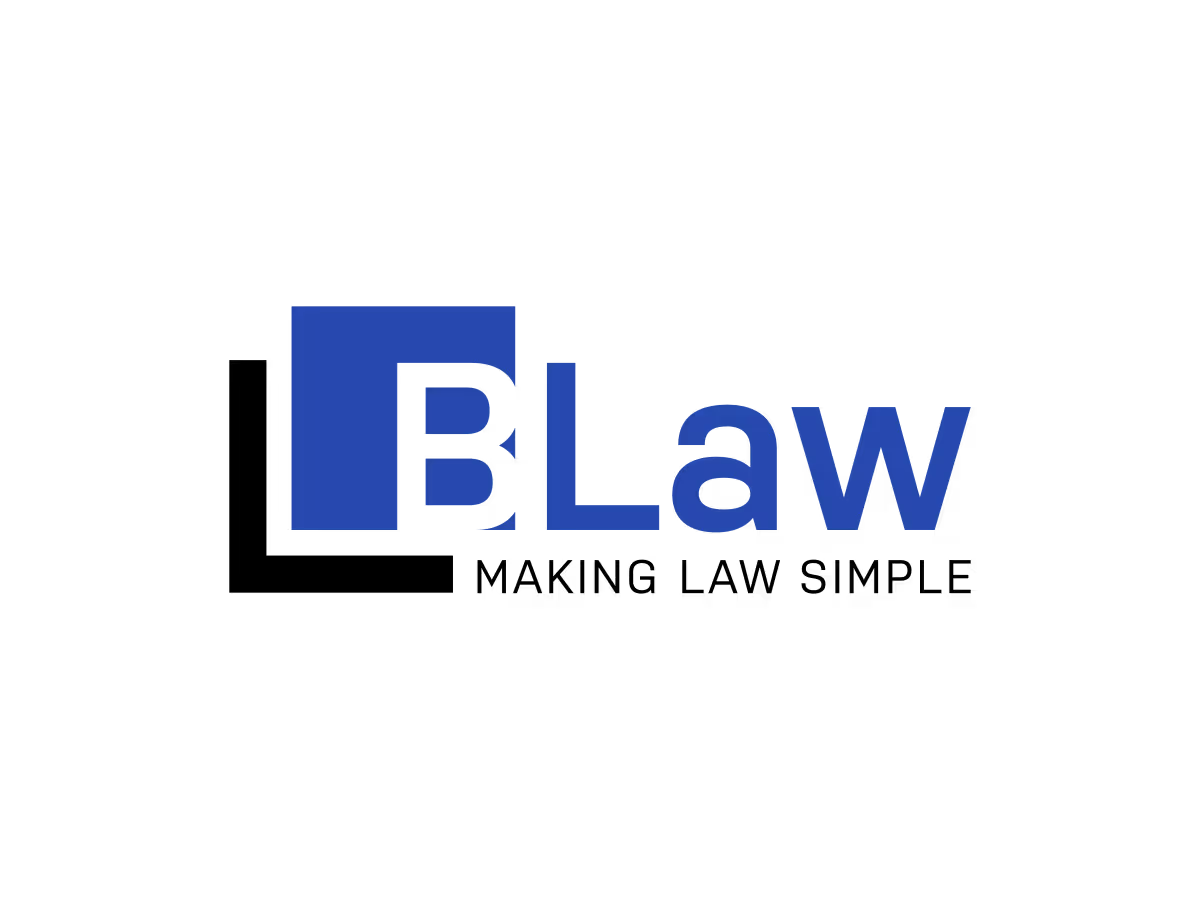
BLaw Vietnam Co., Ltd is a premier law firm in Ho Chi Minh City offering effective Debt Collection services in Vietnam, positioning the firm as the go-to partner for debt recovery since 2007, with accolades from the Debitura Partner Network and services extending to the EU, United States, and wider Asia.
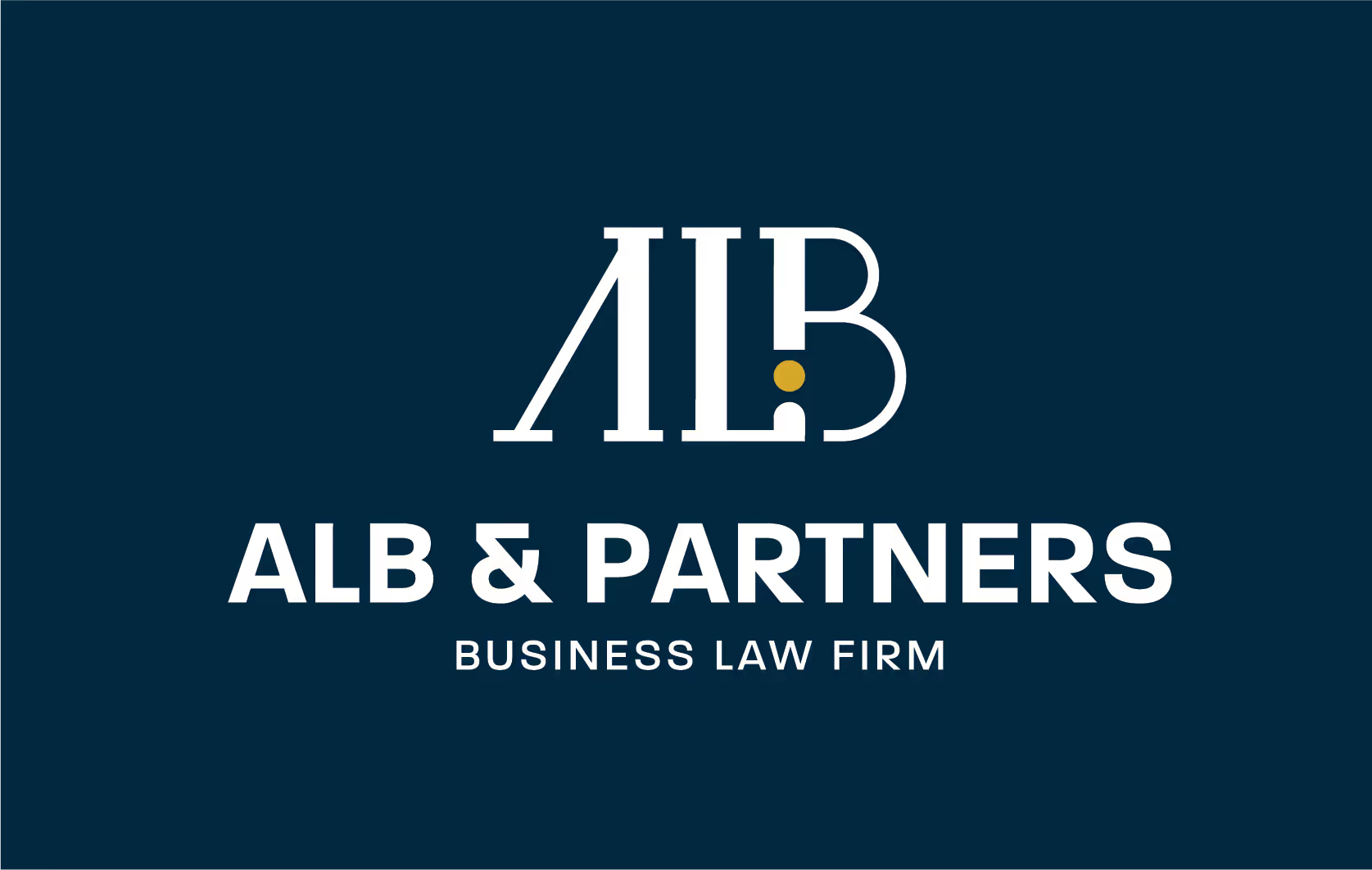
ALB & Partners is a premier law firm in Ho Chi Minh City offering effective Debt Collection services in Vietnam, established in 2018, known for its specialized legal techniques and trusted by clients for high-quality service across various practice areas.
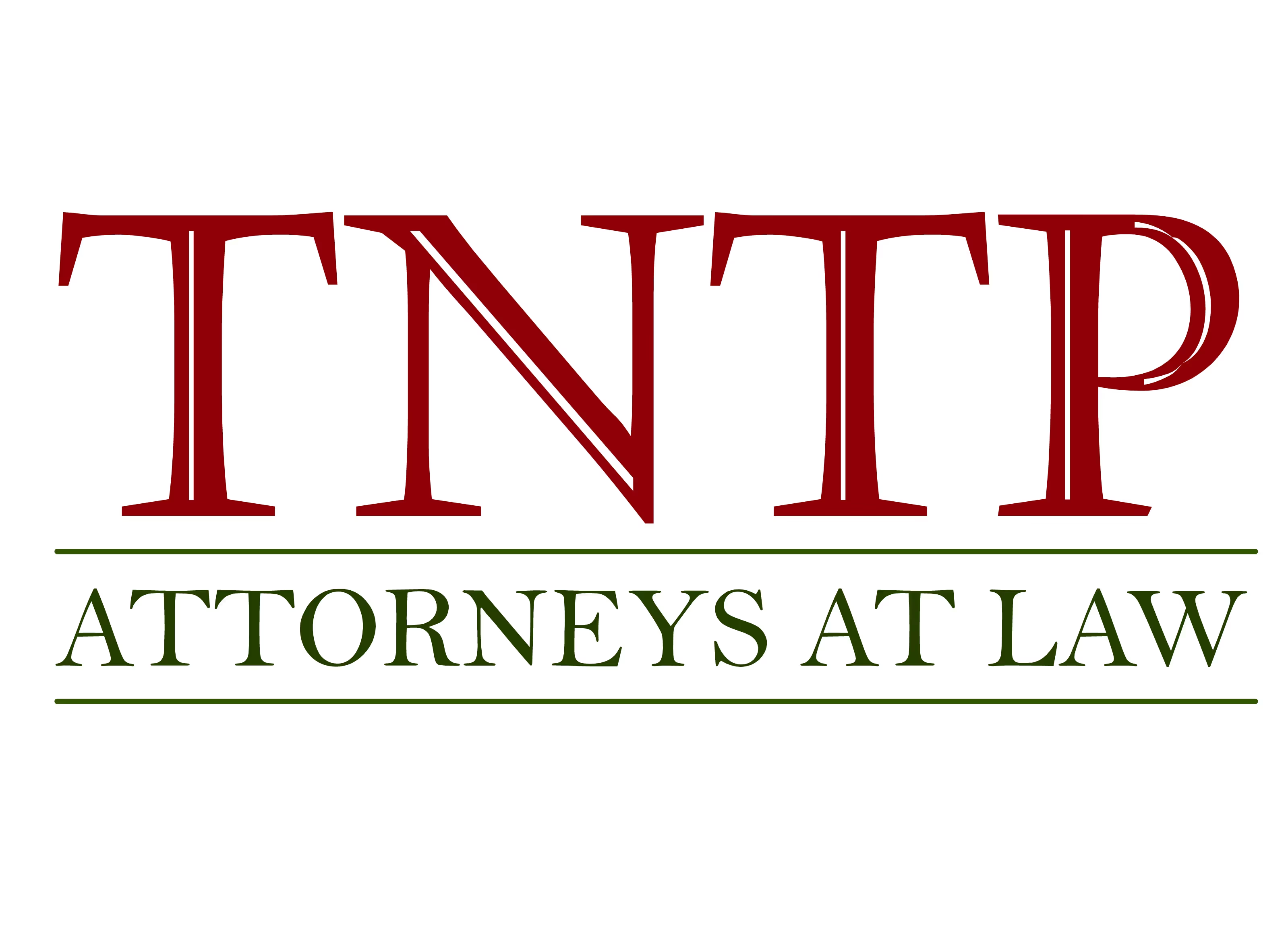
TNTP Law Firm is a premier law firm in District 1 offering effective Debt Collection services in Vietnam, established in 2016, with a reputation for professional solutions and a commitment to client satisfaction, serving both domestic and international clients.

Bizconsult Law Firm is a premier law firm in Hanoi offering effective Debt Collection services in Vietnam, recognized since 2002 for its excellence with accolades such as the A-List Top 100 Lawyers in Vietnam and membership in the International Bar Association.
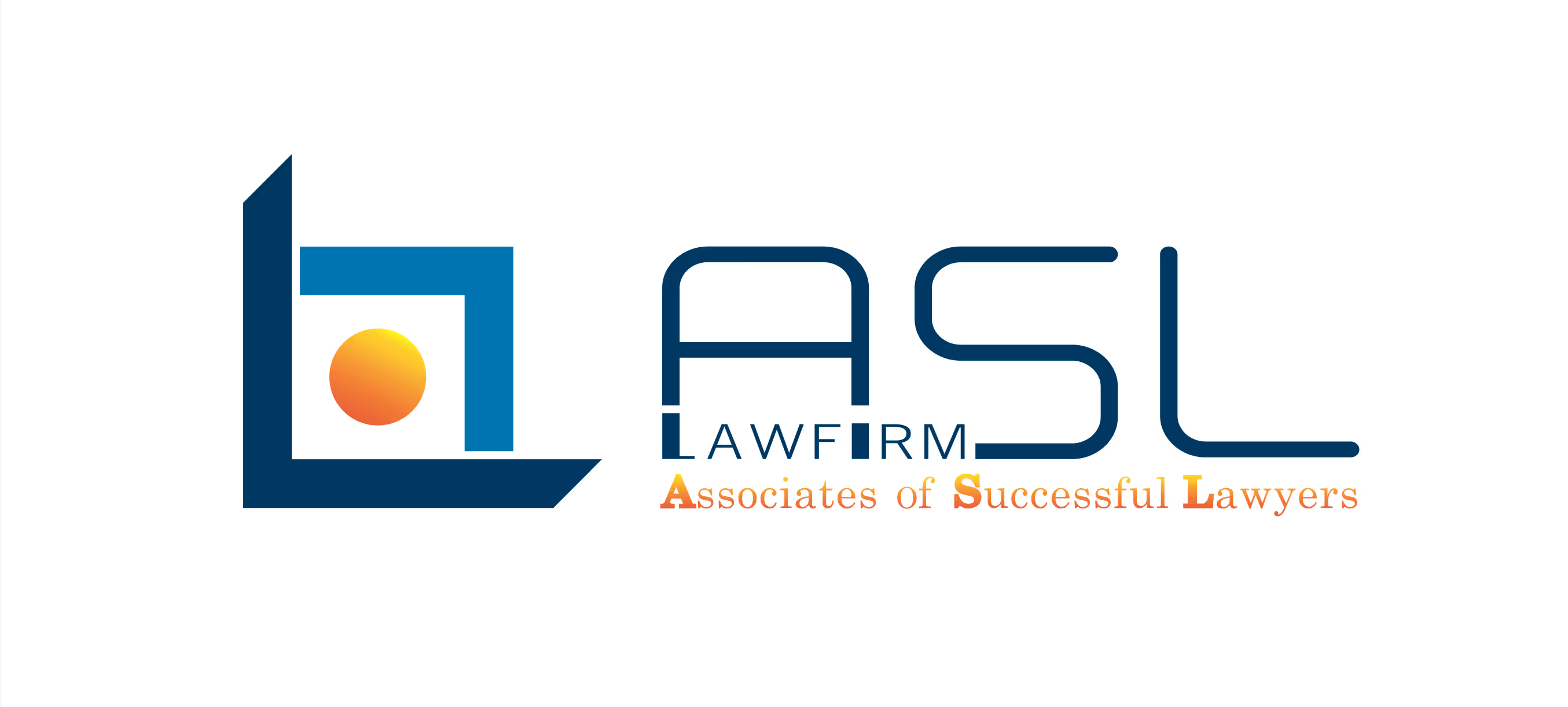
ASL Law Limited Liability Company is a premier law firm in Hanoi offering effective Debt Collection services in Vietnam, founded in 2013, known for its flexible billing structures, award-winning M&A advisory, and membership in the International Bar Association.

ANT Lawyers is a premier law firm in Hoan Kiem District offering effective Debt Collection services in Vietnam, recognized by IFLR1000 and Legal500, founded in 2012, and a member of the International Bar Association and Vietnam Bar Federation.

KENFOX IP & Law Office is a premier law firm in Hanoi offering effective Debt Collection services in Vietnam, established in 2010, renowned for its top-tier IP practice across Southeast Asia, with accolades such as the 2022 Boutique Trademark Law Firm of the Year in Vietnam.
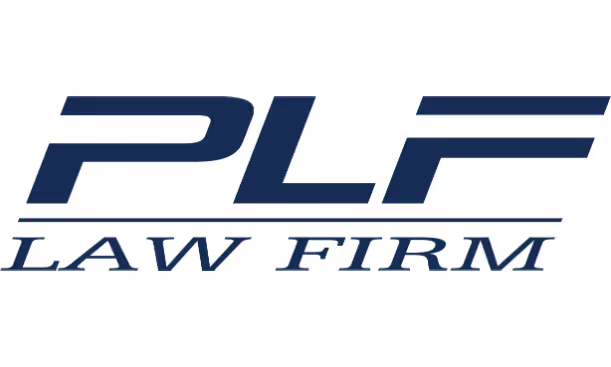
PLF Law Firm is a premier law firm in District 1 offering effective Debt Collection services in Vietnam, established in 2009, renowned for its accolades from IFLR1000, Asialaw, and The Legal 500, and serving clients in Thailand, Myanmar, and Canada.
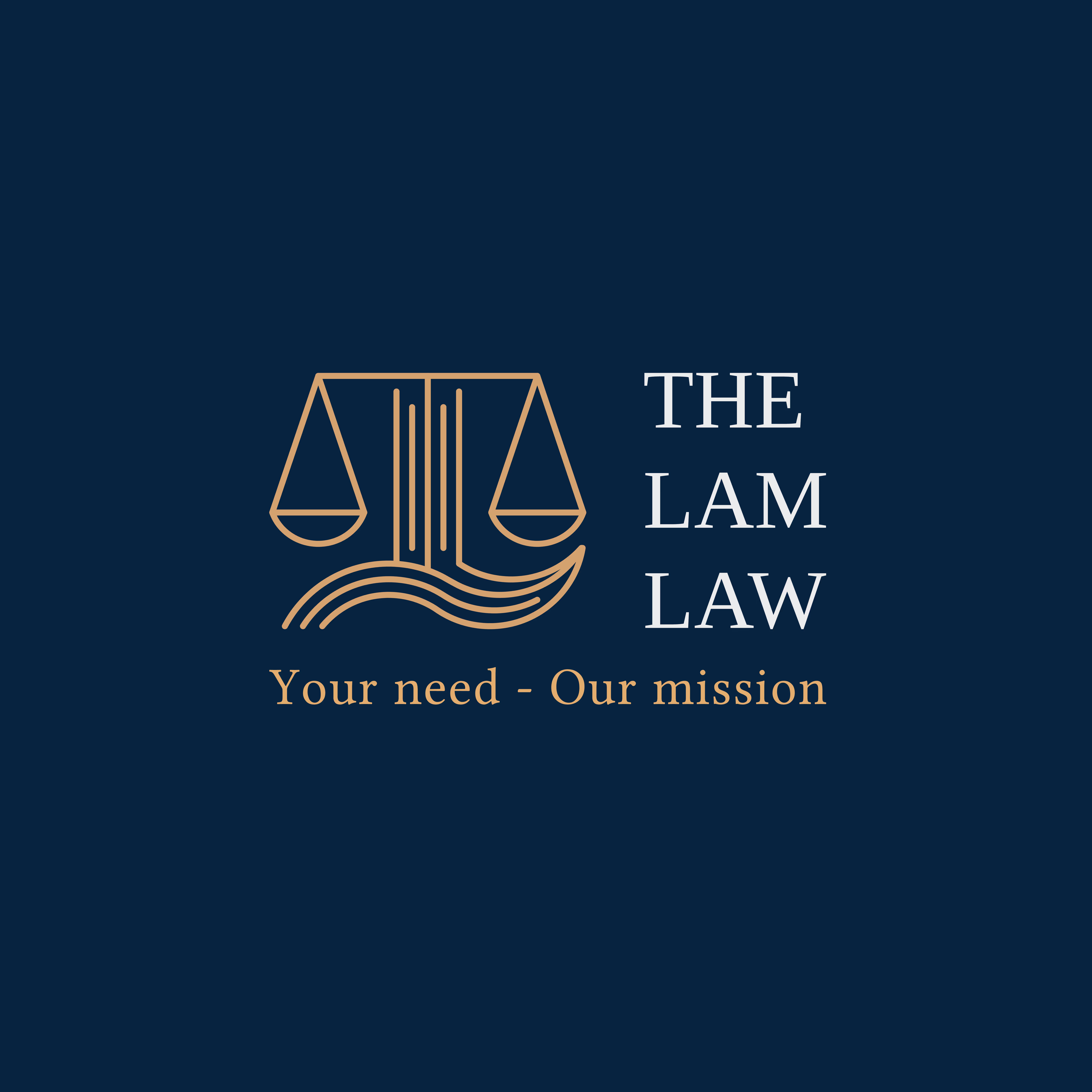
The Lam Law LLC is a premier law firm in Ho Chi Minh City offering effective Debt Collection services in Vietnam, established in 2019 and recognized for its dedication to corporate legal expertise, making it the trusted partner for debt recovery.

Viclawinvest Law Firm is a premier law firm in Ho Chi Minh City offering effective Debt Collection services in Vietnam, established in 2011, renowned for its strategic legal representation, and serving clients across 26 countries with memberships in PIAC and the Ho Chi Minh City Bar Association.
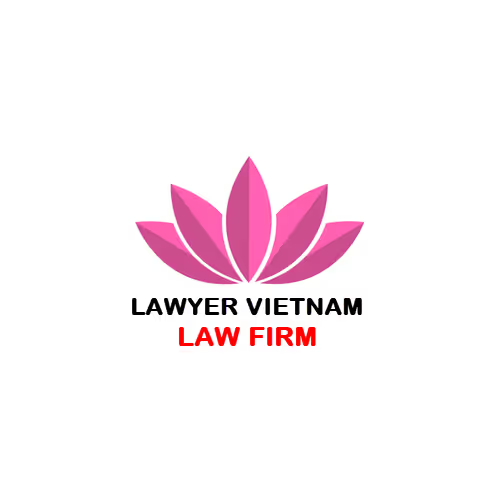
Lawyer Vietnam Law Firm is a premier law firm in Vietnam offering effective Debt Collection services in VN, positioning itself as the go-to partner for debt recovery with a foundation in 2016 and renowned for its industry accolades and memberships.

Anh Quan Consulting Group is a premier law firm in Ho Chi Minh City offering effective Debt Collection services in Vietnam, established in 2023, known for transparent pricing and recognized with industry certifications, making it the go-to partner for debt recovery.

Upper Class Collections Pte Ltd is a premier debt recovery agency in Australia offering effective risk-free debt collection services, trusted since 2006, with operations across ASEAN, and exclusive Debitura partner offering No Cure No Pay based on Debitura's risk-free standard terms; TCM Group and IACC member.





.svg)

.webp)
.png)

.png)
.svg)












.svg)

